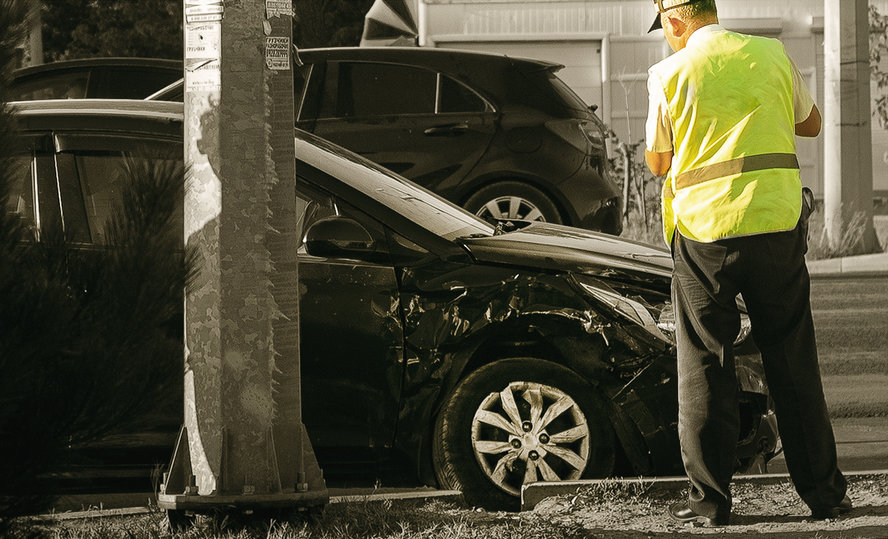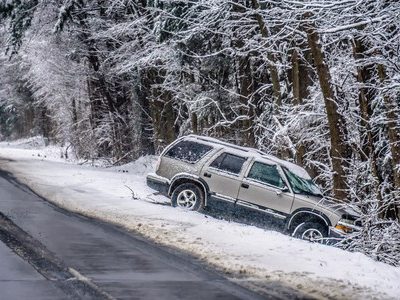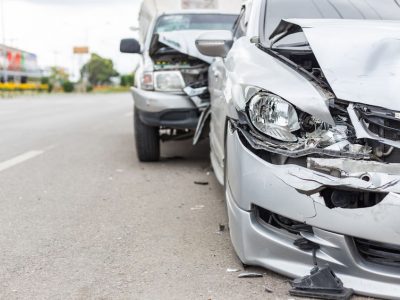

Why you Need a Car Accident Police Report
You’ve probably heard that if you’re in a car accident, you should call 9-1-1 so a police officer can come and make a police report about the accident. The car accident police report will contain details about the crash, statements from anyone directly involved in the accident, and other important information such as road conditions and whether a traffic law was violated.
Insurance adjusters lean heavily on police reports for car accident settlements and lawsuits, especially if the officer’s report shows that their client may not have been mostly or completely at-fault for the crash.
What is a car accident police report?
A car accident police report is a document containing information about the collision written by a responding police officer, usually at the scene of the crash. The investigating officer gathers information for their report by inspecting vehicles, talking to people at the scene, measuring distances such as the length of tired skid marks, and taking pictures.
What is in a car accident police report?
A car accident police report typically includes the following:
- Details about the accident, including the people and vehicles involved in the crash as well as the date, time, and location
- Weather, visibility, and roadway conditions at the time of the accident
- location of damage to the vehicles involved in the accident
- Statements, insurance, and contact information from drivers
- Statements and contact information for passengers and witnesses
- A visual diagram of the accident that shows the location, the path each vehicle was taking, and the point where the vehicles crashed into each other
- Whether a traffic violation occurred and which driver made it
Sometimes the officer will also include their conclusion about how or why the accident might have occurred, including who is at-fault. It is important to understand that any conclusion of this nature is the offer’s opinion, not a statement of fact.
How to get a copy of a police report
If you would like a copy of a police report for an accident you were involved in, you can visit wsp.wa.gov to make a request online. There is a fee of $10.50 and the report may take two to four weeks to get to you.
How do insurance companies use police reports?
While insurance companies always want to review police reports to understand the facts of the collision, they will also conduct their own investigation into the accident. When their investigation is done, they will have made their own conclusions about who is at-fault for the accident – which may or may not line up with the responding officer’s conclusions. This is why a favorable police report does not guarantee a fair settlement for your injuries and losses.
Are police reports admissible in court?
Police reports are typically allowed in small claims courts where litigants are not expected to know all the rules of evidence but when a car accident case goes to trial in Washington State Court, the police report may not be used as evidence (RCW 46.52.080).
Most car accident claims are resolved before trial. Since car insurance adjusters rely on police reports as justification for their settlement offers, they play a critical role in accident claims. If you were injured in an accident and you don’t believe that police report accurately reflects who was at fault in your accident, it would be very helpful to have an experienced car accident lawyer working with you.
Seek the help of a car accident lawyer
If you or a loved one was injured in a collision because of the negligence of another, contact a personal injury lawyer to discuss your legal rights. Let an experienced car accident attorney fight for the full compensation that you deserve. It is not uncommon to receive a settlement from the insurance company that is five to ten times larger with the help of a lawyer. Call the personal injury lawyers at Tario & Associates, P.S. in Bellingham, WA today for a FREE consultation! We have been representing residents of Whatcom County, Skagit County, Island County and Snohomish County since 1979. You will pay nothing up front and no attorney fees at all unless we recover damages for you!




